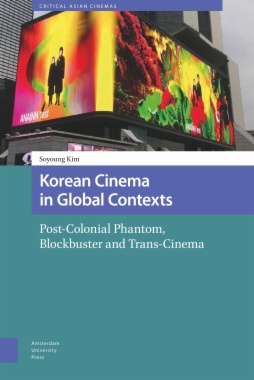Offering the most comprehensive analysis of Korean cinema from its early history to the present, and including the films of Park Chan-wook, Bong Joon-ho and Kim Ki-young, Korean Cinema in Global Contexts: Postcolonial Phantom, Blockbuster and Trans-Cinema situates itself in the local, Inter-Asian, and transnational contexts by mobilizing the critical frameworks of feminism, postcolonial critique and comparative film studies. It is attentive to an enmeshment of the cinematic, aesthetics, politics and cultural history.
- Cover
- Table of Contents
- Acknowledgements
- Introduction
- Part 1: From Pre-Cinematic Culture to Trans-Cinema
- 1. Cartography of Catastrophe: Precolonial Surveys, Postcolonial Vampires and the Plight of Korean Modernity
- 2. The State of Fantasy in Emergency: Fantasmatic Others in South Korean Film
- 3. Modernity in Suspense: The Logic of Fetishism in Korean Cinema
- 4. “Do Not Include Me in Your ‘Us’”: Peppermint Candy and the Politics of Difference
- 5. “Cine-mania” or Cinephilia: Film Festivals and the Identity Question
- 6. The Birth of the Local Feminist Sphere in the Global Era: Yeoseongjang and “Trans-Cinema”
- Part 2: Korean Cinema in a Trans-Asia Framework
- 7. Inter-Asia Comparative Framework: Postcolonial Film Historiography in Taiwan and South Korea
- 8. Postcolonial Genre as Contact Zone: Hwalkuk and Action Cinema
- 9. Geopolitical Fantasy: Continental (Manchurian) Action Movies during the Cold War Era
- 10. Anagram of Inter-Asian Korean Film: The Case of My Sassy Girl
- 11. Comparative Film Studies: Detour, Demon of Comparison and Dislocative Fantasy
- Index

